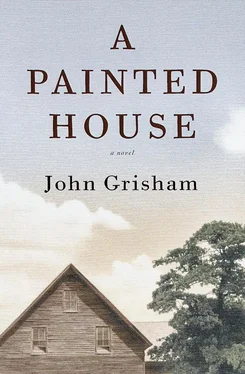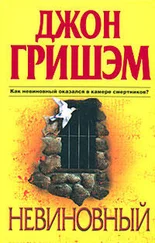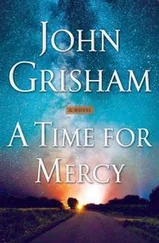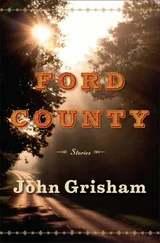“Eat the cookies, Luke,” Pearl said as she passed through the room. It was more of a command than an invitation, and I took a bite of one.
“Who are you pullin’ for?” asked Pop.
“I don’t know,” I mumbled, and I really didn’t. I had been taught to hate both teams. And it had been easy hating them when they were away in New York, in another world. But now they were in Black Oak, playing the game I loved, live from Yankee Stadium. My hatred vanished. “Dodgers, I guess,” I said.
“Always pull for the National League,” Pappy said behind me.
“I suppose,” Pop said reluctantly. “But it’s mighty hard to pull for the Dodgers.”
The game was broadcast into our world by Channel 5 out of Memphis, an affiliate of the National Broadcasting Company, whatever that meant. There were commercials for Lucky Strike cigarettes, Cadillac, Coca-Cola, and Texaco. Between innings the game would vanish and there would be a commercial, and when it was over, the screen would change again, and we’d be back inside Yankee Stadium. It was a dizzying experience, one that captivated me completely. For an hour I was transported to another world.
Pappy had business and at some point left the house and walked to Main Street. I did not hear him leave, but during a commercial I realized he was gone.
Yogi Berra hit a home run, and as I watched him circle the bases in front of sixty thousand fanatics, I knew I would never again be able to properly hate the Yankees. They were legends, the greatest players on the greatest team the game had known. I softened up considerably but vowed to keep my new feelings to myself. Pappy would not allow Yankee sympathizers in his house.
In the top of the ninth, Berra let a pitch get past him. The Dodgers scored two runs and won the game. Pearl wrapped the cookies in foil and sent them with me. I thanked Pop for allowing me to share this unbelievable adventure, and I asked him if I could come back when the Cardinals were playing.
“Sure,” he said, “but it might be a long time.”
Walking back to the gin, I asked Pappy a few questions about the basics of television broadcasting. He talked about the signals and towers in very vague and confusing terms and finally admitted that he knew little about it, being as how it was such a new invention. I asked when we might get one. “One of these days,” he said, as if it would never happen. I felt ashamed for asking.
We pulled our empty trailer back to the farm, and I picked cotton until quitting time. During supper the adults gave me the floor. I talked nonstop about the game and the commercials and everything I’d seen on Pop and Pearl’s television.
Modern America was slowly invading rural Arkansas.
Just before dark my father and Mr. Leon Spruill went for a short walk past the silo. My father explained that Stick Powers was preparing to arrest Hank for the murder of Jerry Sisco. Since Hank was causing so much trouble anyway, it might be the perfect time for him to ease away into the night and return to the hills. Evidently Mr. Spruill took it well and made no threats to leave. Tally was right; they needed the money. And they were sick of Hank. It appeared as though they would stay and finish the harvest.
We sat on the front porch and watched and listened. There were no sharp words, no signs of breaking camp. Nor was there any evidence that Hank might be leaving. Through the shadows we could see him every now and then, moving around their camp, sitting by the fire, rummaging for more leftovers. One by one the Spruills went to bed. So did we.
I finished my prayers and was lying in Ricky’s bed, wide awake, thinking about the Yankees and Dodgers, when an argument started in the distance. I slid across the floor and peeked through the window. All was dark and still, and for a moment I couldn’t see anyone. The shadows shifted, and next to the road I could see Mr. Spruill and Hank standing face-to-face, both talking at once. I couldn’t understand what they were saying, but they were obviously angry.
This was too good to miss. I crawled into the hallway and stopped long enough to make sure all the adults were asleep. Then I crept across the living room, through the front screen door, onto the porch, down the steps, and scooted to the hedgerow on the east side of our property. There was a half-moon and scattered clouds, and after a few minutes of silent stalking I was close to the road. Mrs. Spruill had joined the discussion. They were arguing about the Sisco beating. Hank was adamant about his innocence. His parents didn’t want him arrested.
“I’ll kill that fat deputy,” he growled.
“Just go back home, son, let things cool down,” Mrs. Spruill kept saying.
“The Chandlers want you to leave,” Mr. Spruill said at one point.
“I got more money in my pocket than these sodbusters’ll ever have,” Hank snarled.
The argument was spinning in several directions. Hank said harsh things about us, the Mexicans, Stick Powers, the Siscos, the general population of Black Oak, and he even had a few choice words for his parents and Bo and Dale. Only Tally and Trot went unscathed. His language grew worse and his voice louder, but Mr. and Mrs. Spruill did not retreat.
“All right, I’ll leave,” he finally said, and he stormed toward a tent to fetch something. I sneaked to the edge of the road, then scampered across it and fell into the depths of the Jeter cotton on the other side. I had a perfect view of our front yard. Hank was stuffing an old canvas bag with food and clothes. My guess was that he would walk to the highway and start hitchhiking. I cut through the rows and crept along the side of the shallow ditch, in the direction of the river. I wanted to see Hank when he walked by.
They had more words, then Mrs. Spruill said, “We’ll be home in a few weeks.” The talking stopped, and Hank stomped by me, in the center of the road, a bag slung over his shoulder. I inched my way to the end of the row and watched as he headed for the bridge.
I couldn’t help but smile. Peace would be restored to our farm. I squatted there for a long time, long after Hank had disappeared, and thanked the stars above that he was finally gone.
I was about to begin my backtracking when something suddenly moved directly across the road from me. The cotton stalks rustled just slightly, and a man rose and stepped forward. He was low and quick, obviously trying to avoid being seen. He glanced back down the road, in the direction of our house, and for an instant the moonlight hit his face. It was Cowboy.
For a few seconds I was too scared to move. It was safe on the Jeter side of the road, hidden by their cotton. I wanted to retrace my steps, hurry to the house, crawl into Ricky’s bed.
And I also wanted to see what Cowboy was up to.
Cowboy stayed in the knee-deep ditch and moved quickly, without a sound. He would advance, then stop and listen. Move forward, then halt. I was a hundred feet behind him, still on Jeter property, moving as fast as I dared. If he heard me, then I would duck into the thick cotton.
Before long I could see the hulking figure of Hank, still in the center of the road, going home in no particular hurry. Cowboy slowed his chase, and I, too, slowed my pursuit.
I was barefoot, and if I stepped on a cottonmouth I would die a horrible death. Go home, something told me. Get out of there.
If Cowboy wanted to fight, why was he waiting? Our farm was now out of sight and sound. But the river was just ahead, and maybe that’s what Cowboy wanted.
As Hank neared the bridge, Cowboy quickened his pace and started walking in the center of the road. I stayed at the edge of the cotton, sweating and out of breath and wondering why I was being so foolish.
Hank got to the river and started over the bridge. Cowboy began running. When Hank was about halfway over, Cowboy stopped long enough to cock his arm and throw a rock. It landed on the boards near Hank, who stopped and whirled around. “Come on, you little wetback,” he growled.
Читать дальше












